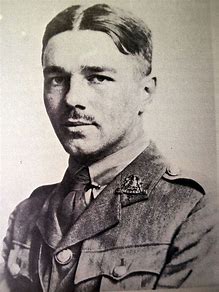'Exposure' by Wilfred Owen, quote analysis flashcards (created by Faith)
5.0(1)
Card Sorting
1/15
Earn XP
Study Analytics
Name | Mastery | Learn | Test | Matching | Spaced |
|---|
No study sessions yet.
16 Terms
1
New cards

Wilfred Owen
Born in 1893, Wilfred Owen was a soldier and a poet during ww1. He was sadly killed one week before the end of the war and was killed in action. He was a Christian but rejected the church and lost faith. He obtained shellshock but wasn’t properly treated for it. this means he was disillusioned by his role as a soldier. He was very angry about how badly soldiers were treated and he wanted to show people what the war was actually like through his poems and expose the reality of the hardships to those who are at home and who were ill-informed. He also wrote ‘Dulce Est Decorum Est’
2
New cards
structure
* exposure has a cyclical structure and has anaphora used within it to show the repetitive nature of conflict
3
New cards
how is power presented in this poem?
* the power of nature is being represented as incredibly strong and controlling
* it is attacking the soldiers which shows how it can be an enemy
* we can also see the lack of power within the soldiers in the war, it seems like everything is against them and they question
* it is attacking the soldiers which shows how it can be an enemy
* we can also see the lack of power within the soldiers in the war, it seems like everything is against them and they question
4
New cards
‘our brains ache’
* ‘our’ refers to soldiers. tired, bad mental state, soldiers have little power
* the word ‘brain’ instantly shows the psychological impact the war has on these soldiers and how they’re being forced to bear witness to seeing ‘half-known faces’ die
* physical suffering of being exposed to the elements
\
* the word ‘brain’ instantly shows the psychological impact the war has on these soldiers and how they’re being forced to bear witness to seeing ‘half-known faces’ die
* physical suffering of being exposed to the elements
\
5
New cards
‘merciless iced east winds that knive us’
* personification of the wind is used in a sinister way to inflict fear among the reader.
* Nature is being shown as an enemy to the soldiers.
* the conditions in the trenches were harsh and cold.
* Sibilance mimics the strong slashing of the wind and how its attacking them.
* Nature is being shown as an enemy to the soldiers.
* the conditions in the trenches were harsh and cold.
* Sibilance mimics the strong slashing of the wind and how its attacking them.
6
New cards
‘wearied we’
* the use of alliteration makes the phrase difficult to say, alluding to the difficulty of the soldier’s lives
7
New cards
‘worried by silence, centuries whisper, curious, nervous’
* the use of asyndetic listing creates a rushed panicked pace and contrasts with the content of the poem
8
New cards
‘the mad gusts tugging on the wire’
* ‘mad’ angry, insane, perhaps reflecting mental state of soldiers, they’re going insane/mad/crazy- shell shock
* personification of the wind again shows how controlling it is as thereis the violent verb of ‘tugging’
* personification of the wind again shows how controlling it is as thereis the violent verb of ‘tugging’
9
New cards
‘what are we doing here’
* rhetorical question implies that the speaker is questioning his motivation to fight
* also questioning his place in the world
* links to later ‘is it that we’re dying?’
* low moral, lacking purpose, futile, perhaps disorientated
* also questioning his place in the world
* links to later ‘is it that we’re dying?’
* low moral, lacking purpose, futile, perhaps disorientated
10
New cards
‘dawn massing in the east her melancholy army’
* metaphor for the rising sun
* morning is an enemy
* the soldiers aren’t looing forward to having another day at war, it seems never ending
* morning is an enemy
* the soldiers aren’t looing forward to having another day at war, it seems never ending
11
New cards
‘sudden successive flights of bullets streak the silence’
* sibilance is mimicking the sound of bullets
* they’re being shot at
* they’re being shot at
12
New cards
‘deadly… snow’
* snow is also a threat
* juxtaposition as snow is stereotypically light and gentle but at war it is dangerous and ‘deadly’
* hyperbole is emphasising how disruptive even small things like a bit of snow is
* juxtaposition as snow is stereotypically light and gentle but at war it is dangerous and ‘deadly’
* hyperbole is emphasising how disruptive even small things like a bit of snow is
13
New cards
‘pale flakes with fingering stealth come feeling for our faces’
* nature is being personified as evil
* ‘pale flakes’ is referring to the snow
* sinister, stealthy, enemy, attacking them
* ‘pale flakes’ is referring to the snow
* sinister, stealthy, enemy, attacking them
14
New cards
‘snow dazed’ ‘we drowse sun-dozed’
* stunned, confused, overwhelmed
* both sides of nature are tiring them out
* both sides of nature are tiring them out
15
New cards
‘we turn bac to our dying’
* blunt, passive statement shows the soldiers’ disillusionment with their cause
16
New cards
‘but nothing happens’
* repeated at the end of most stanzas
* emphasises the agony soldiers felt waiting for something to happen
* gives a sense of foreboding and dread
* emphasises the agony soldiers felt waiting for something to happen
* gives a sense of foreboding and dread